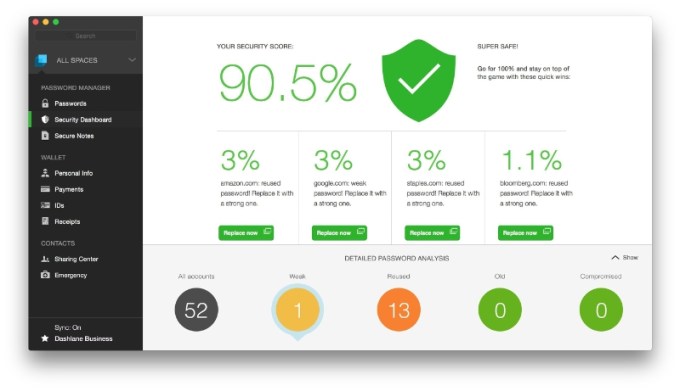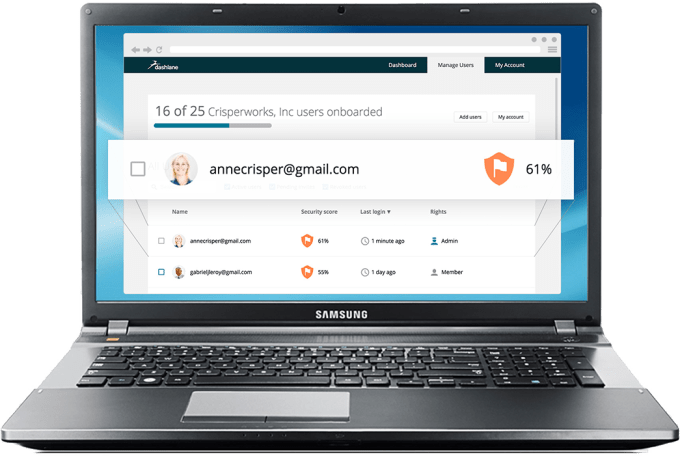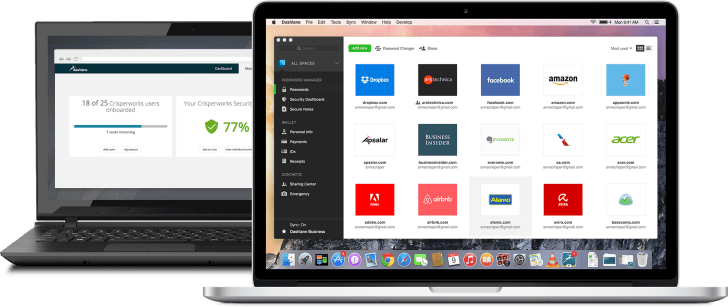Keeping your passwords safe, updated, strong and less vulnerable to hacks is a challenge for everyone – even a few of Facebook CEO Mark Zuckerberg’s online accounts were hacked over the weekend, for example, likely due to the new dump of LinkedIn account data. That’s where password management software can help. Today, the company behind one of the more popular solutions for helping consumers manage their online accounts, Dashlane, is making its move into the enterprise.
The company this morning announced the launch of its new software called Dashlane Business, aimed at corporate customers. Much like the consumer-facing solution, the software uses the same security architecture which requires users to type in a master password that’s never stored or transmitted by Dashlane. It also uses local encryption to secure the data.
The software, like the consumer version, includes a password generator that suggests unique, hard-to-crack random passwords, and a changer tool that helps you automatically update accounts, including when there has been a breach.
Dashlane also helps users more easily login to their accounts thanks to its auto-fill and auto-login capabilities in the web browser. This is powered by Dashlane’s page analysis engine, dubbed “Semantic Engine DashIQ,” which is proprietary and one of the differentiating factors compared with similar solutions from competing companies.

But the bigger idea with Dashlane Business is to give IT both oversight and more control over employees’ credentials – including those unofficial accounts they’re using outside of the company’s explicit approval. These can end up being weak links in a company’s security, as they fall outside of I.T.’s password policies and management.
With Dashlane Business, the I.T. department can deploy the software remotely, onboard users, and gain an overview of employees’ accounts – both official and otherwise. They can control who has access to which credentials, sync changes automatically, track usage, and set up an emergency contact for business-critical logins.

Through a central Admin Console, IT can see what password security inside their organization looks like across all accounts being used, and then enforce policies.
However, the system does respect users’ privacy to some extent as it allows employees to securely separate their work and personal passwords into “Personal” and “Team” spaces. This lets IT gain insights, without being overly intrusive.
The company said that it developed the business software at the request of thousands of customers who were demanding an enterprise-level offering. Of course, such a thing was likely on the company’s roadmap already – it’s common for password management tool providers to have a business-level tier to generate additional revenues beyond their consumer subscription products.
In Dashlane’s case, its Business product starts at $2 per user per month, then scales up by volume with custom setup options available for enterprise customers. That entry point undercuts rival 1Password, whose 1Password Teams pricing starts at $3.99/user/month, but is more inline with LastPass Enterprise, which starts at $24/user/year.
